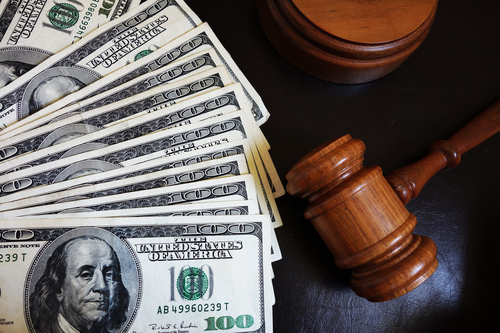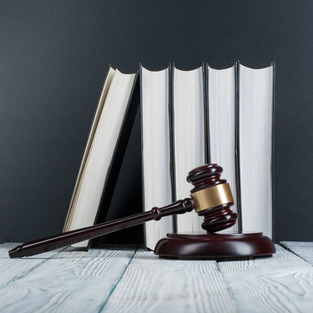Magistrate Judge Recommends Damages of $54 Million Against Defaulting Defendants in Abbott Labs Diabetes Test Strips Case
The magistrate judge found that Abbott should be awarded $54 million in damages for loss of goodwill following the defendants’ unauthorized sale of international versions of Abbott’s FreeStyle Diabetes test strips into the United States. While the report recommended denial of Abbott’s motion for prejudgment interest, the magistrate judge found that enhanced damages totaling more than $54 million should be awarded to Abbott for loss of goodwill following the defendants’ unauthorized sale of international versions of Abbott’s FreeStyle Diabetes test strips into the United States.
Significant Material Differences Establish Likelihood of Consumer Confusion[Magistrate]Abbott Labs first filed this lawsuit in October 2015 alleging claims of trademark infringement against hundreds of defendants for diverting international FreeStyle test strips into the U.S. for sale. In May 2016, the Eastern New York District Court noted that 85 defendants were in default for failing to respond to Abbott’s complaint. U.S. Magistrate Lois Bloom had recommended default judgments against three additional defendants in May 2020, before she issued her report and recommendation last week. This July, U.S. District Judge Carol Bagley Amon granted Abbott’s request to freeze the assets of those additional defendants in default to pay a $33.4 million damages judgment for infringement.
The alleged trademark infringement in this case involves gray market goods, which are manufactured under the trademark owner’s authorization that are purchased from distributors and imported without permission into a different market where a different version of the same product is sold. While Abbott Labs was still required to show a likelihood of consumer confusion, Judge Bloom noted that the traditional Polaroid factors outlined by Judge Friendly are of limited use in the gray market goods context.
However, Judge Bloom found that Abbott Labs showed the required likelihood of consumer confusion by alleging significant material differences between the diverted international FreeStyle test strips and those authorized by Abbott for sale in the United States. Judge Bloom cited cases from several New York district courts, including the Southern District of New York’s 2003 ruling in Tiffany (NJ) v. Luban, to find that the defendants’ defaulting status, along with Abbott Labs’ well-pled allegations, established willful infringement Citing cases from several New York district courts, including the Southern District of New York’s 2003 ruling in Tiffany (NJ) v. Luban, Judge Bloom found that the defendants’ defaulting status, along with Abbott’s well pled allegations, established willful infringement for Abbott’s Lanham Act claims.
Conservative Calculation Methodology Leads to Enhanced Damages Recommendation
Noting that the Eastern New York district court had already entered a preliminary injunction against the defendants sued by Abbott Labs, Judge Bloom found that the four-factor equity test from eBay v. MercExchange (2006) weighed strongly in favor of a permanent injunction against all 85 defendants. Judge Bloom found that Abbott Labs was entitled to actual damages against 28 defendants who were in default. This was based on Abbott’s theory that every unauthorized sale made of international FreeStyle containers displaced a sale of a FreeStyle container of equal size that had been authorized for the U. The method used by Judge Bloom included a 2% discount for prompt payment and a 5% inventory management fee on each U.S. wholesale cost. This ensured that the defendants would not be able to benefit from erroneous assumptions. Abbott’s loss of goodwill caused by the diverted goods further supported damages enhancement, although Judge Bloom recommended that damages be doubled and not trebled to avoid a windfall for Abbott.
Specific damages recommended by Judge Bloom against the defendants in default include:
$31.8 million against Globalmed Limited and Paul Michael Capper for unauthorized sales of 366,283 50-count and 6,071 100-count FreeStyle boxes;
$11.4 million against Absolute Freight Services and Luis Soto for unauthorized sales of 131,442 50-count and 1,557 100-count FreeStyle boxes;
$2.2 million against Tri-State Medical Supplies Equipment, Erwin Ganzfried, Mordechai Kritzler and Albert Krtizler for unauthorized sales of 25,965 50-count FreeStyle boxes;
$2.1 million against Pharmacy Wholesale Services and Douglas Parker Rudderham for unauthorized sales of 29,316 50-count FreeStyle boxes; and
- $2.1 million against Medical Discount Services and Brian Mesika for unauthorized sales of 26,104 50-count FreeStyle boxes.
- Despite finding willful infringement, Judge Bloom did not recommend that the district court grant Abbott Labs’ motion for prejudgment interest. Taking the standard for determining exceptional cases from another patent decision by the U.S. Supreme Court, Octane Fitness v. ICON Health & Fitness (2014), the magistrate judge noted that the defendants in default could not have unreasonably litigated because they didn’t litigate the trademark case at all.
- Image Source: Deposit Photos
- Author: zimmytws
- Image ID: 61513531
Steve Brachmann
Steve Brachmann graduated from the University at Buffalo School of Law in May 2022, earning his Juris Doctor. He served as the president of the Intellectual






